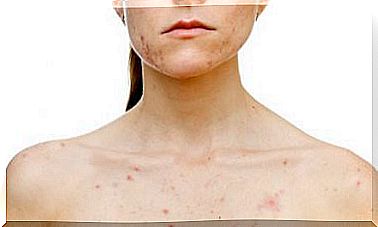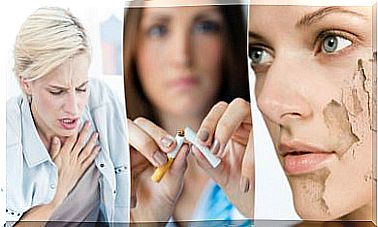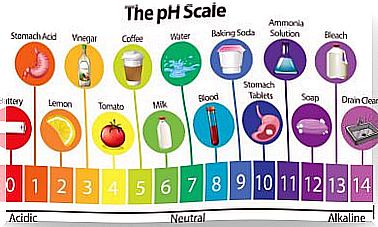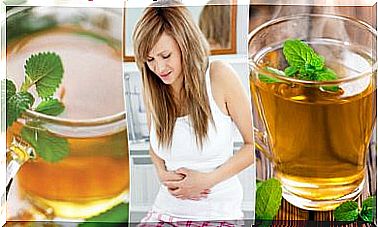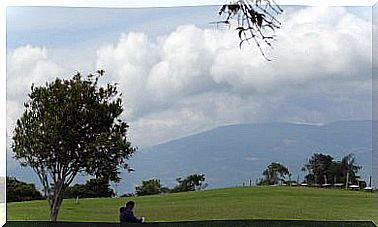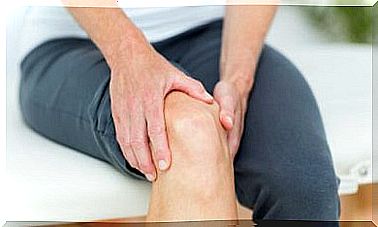Can A Diet Improve Hidradenitis Suppurativa?
Healthy diets are the best allies for the prevention and treatment of many diseases. Thinking of a diet for hidradenitis suppurativa or acne inverse would not be wrong.
The treatment of this skin condition is supported by a therapeutic guide in which diet is part of the general non-pharmacological measures, according to the Argentine Society of Dermatology. Although studies are not strong evidence, the omission of some dairy foods, refined foods, sugars and yeasts could improve symptoms.
Also, some supplements, such as vitamin D, zinc, and turmeric would also be beneficial. Let’s see more details about how the diet for hidradenitis suppurativa is adjuvant.
What is hidradenitis suppurativa?
Hidradenitis suppurativa (HS) is a chronic, recurrent and autoinflammatory skin disease that has a negative impact on quality of life. The hair follicle becomes clogged and forms bumps that become inflamed and ruptured.
It is called inverted acne because the skin lesion appears under the skin and often in areas where there is friction, such as the armpits and groin.
It has a worldwide prevalence of 0.05% to 4% and women between the ages of 20 and 40 are more likely to suffer from it. The cause of the obstruction is not known with certainty, but genetics, obesity, rubbing of the skin and smoking are listed as risk factors.
How can diet help the treatment of hidradenitis suppurativa?
Dr. Lawrence Gibson says that what you eat can have an impact on hidradenitis suppurativa. Nutritious and balanced diets can control overweight and obesity, which are considered risk factors.
There is not enough evidence that a specific diet cures hidradenitis suppurativa, but patients and doctors know the importance of nutritional management in controlling this pathology. Here we review some of the recommendations and advances.
Dairy free diet
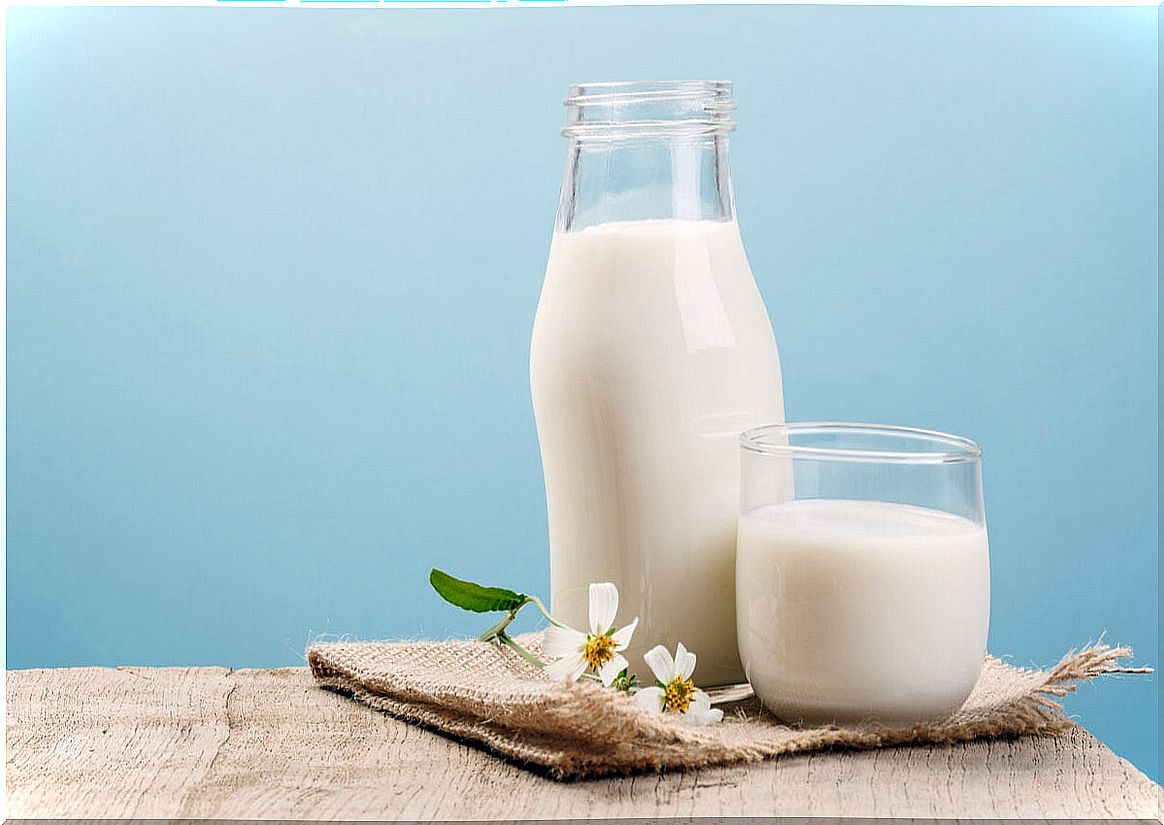
In the Journal of the American Academic of Dermatology , a group of researchers highlight that dairy, in general, can contribute to acne and HS. By applying a dairy-free diet in 47 patients with the disease, they managed to improve 83% of the cases and none got worse.
Dairy derivatives contain casein, serum, and hormones known as androgens , which clog the hair follicle. It was concluded that a dairy-free diet can reduce new lesions and decrease the symptoms of hidradenitis suppurativa.
It is recommended to exclude milk, fresh cheeses, ricotta , cottage cheese, aged cheeses, milk ice creams, yogurt, heavy cream, whey and butter, among others.
Low glycemic load diet
A group of experts indicated that foods rich in simple carbohydrates, such as soft drinks, sweets and ice cream, increase the level of sugar in the blood and, consequently, the secretion of insulin. From here the androgens are released and increase the appearance of HS.
To lower the glycemic load of the diet, it is suggested to eliminate sugars, desserts, sugary drinks, sweets, syrups, corn syrups, chocolate bars and breakfast cereals. Likewise, fiber consumption should be increased through vegetables, legumes and fruits.
Wheat and yeast free diet
Wheat and yeast have been linked to increased symptoms of HS. Saccharomyces yeast is used in the production of beer, wine and CO2 gas for bread dough. Several researchers found that this yeast causes a reaction in the immune system, producing intolerance.
A small study with 12 patients suffering from hidradenitis suppurativa and who included a yeast-free diet for 1 year found that the lesions disappeared and their quality of life improved.
But when the patients ingested the wheat or beer again, the symptoms returned. The sample size and the lack of a control group do not allow generalization of the results. It is also unclear if the yeast problem occurs only in patients with wheat intolerance.
It is recommended to eliminate fermented alcoholic beverages, such as beer and wine. Also breads, cakes, pizza , soy sauces, dry soups, and all foods that contain wheat and yeast.
Mediterranean diet
The journal Nutrients shows the results of a study in 41 patients with HS who had a low consumption of foods typical of the Mediterranean diet. While another group of patients who consumed them did not suffer from the pathology.
The Mediterranean diet includes vegetables, fresh fruits, whole grains, beans, extra virgin olive oil, fish and shellfish. While reducing the consumption of refined and processed foods. It has a low glycemic load and a high fiber content.
Low calorie diet
In some investigations it has been observed that many patients with hidradenitis suppurativa are obese and there is a direct relationship between the body mass index and the severity of the disease. Dr. Boer reported that low-calorie diets that promote weight loss reduce the onset of the disorder.
In a retrospective study on obese patients undergoing bariatric surgery, it was found that those who lost 15% of their weight decreased the severity of HS.
On the other hand, low-calorie diets include foods high in fiber, as they produce satiety. In addition, products with a high glycemic load, such as sugars and refined ones, are excluded.
Vegan diet
Several studies connect good gastrointestinal function with healthy skin. This is related to the microorganisms that grow in the intestines (the gut microbiota). People with a greater diversity of the microbiota are those who eat more vegetables.
The North American Guide for the Clinical Management of HS published that, in patients with hidradenitis suppurativa and low intake of vegetables, a lower diversity of the microbiota was found. The control group without HS and a diet rich in vegetables stood out for having varied microorganisms.
On the other hand, although there are no studies to support the information, it seems that the exclusion of vegetables belonging to the Solanaceae family (potato, eggplant, tomato, paprika) could improve symptoms, as occurs in some autoimmune diseases.
What supplements are recommended to support the hidradenitis suppurativa diet?
Although there is little progress in clinical trials on the use of supplements in the treatment of hidradenitis suppurativa, some specialists recommend them as adjunctive therapy.
Zinc
Brocard and Dréno found that zinc gluconate at a dose of 90 milligrams per day worked as a restorer of innate immunity in 22 patients with advanced stages of HS. Other professionals recommend 30 to 60 milligrams per day to improve the inflammatory process of acne.
Vitamin D

Vitamin D also plays an important role in reducing inflammation and its application in HS has been discussed. A group of experts observed that, in patients with HS and vitamin D deficiency, when supplemented with the nutrient, 63% had a small improvement in their disease.
In addition, they recommend using vitamin D through food or as a supplement. Not through sunlight, as it can worsen the clinical picture.
Turmeric
Some studies refer to the capacity of turmeric as an antioxidant, anti-inflammatory and regulator of the immune system. Its active compound, curcumin, modulates compounds that cause inflammation, known as cytokines .
Therefore, turmeric could improve the inflammatory process in hidradenitis suppurativa. Although there are no definitive conclusions on dosage and formulation, its positive effect is recognized.
The diet indicated in hidradenitis suppurativa is not just a
If you have hidradenitis suppurativa and you are thinking of changing your diet, it is best to consult your dermatologist immediately. This professional will tell you about the type of diet that best suits the HS phase you are in.
It is also advisable to rely on a nutritionist to determine the nutritional status and the foods to select in case of a food intolerance. Special preparation forms to increase fiber and zinc should be considered.
